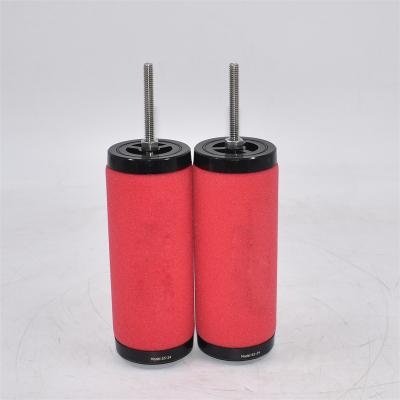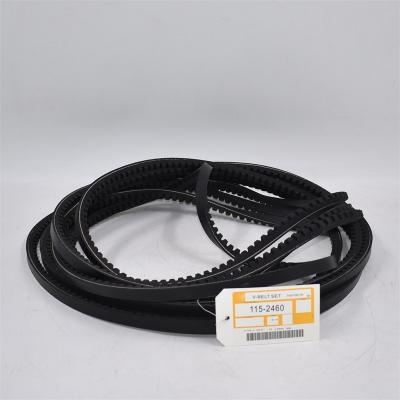How Fleet Managers Can Encourage Fuel-Efficient Driving Habits
Fuel is one of the highest costs for fleet managers. Unfortunately, the prices of natural gas and diesel often fluctuate. The past few years have been challenging due to pandemics, supply chain disruptions and the Russian invasion of Ukraine.
These factors have led to soaring and high natural gas prices, and fleet owners must find ways to reduce costs. Here's how they encourage drivers to save fuel on the road.
Enforcing New Policies
The most direct way to encourage fuel-efficient driving habits is to implement new policies for drivers. Fleet managers can set efficiency indicators for the team and ask them to set specific goals every quarter. Some companies set speed limits for their drivers to ensure they get as many miles as possible.
Training Drivers From the Start
One way to make the policy effective is for team managers to communicate their expectations from the start. Recruiting managers and supervisors can encourage fuel-efficient driving habits by allowing new people to participate in training. These workers may be entry-level, first-time employed or experienced veterans. Either way, team managers should ensure that they know what expectations and targets they need to meet.
Giving Feedback to Drivers
One of the best ways to improve your driving habits is to give feedback. Let employees know about their work and whether they save fuel, so that they can directly know whether their performance is good or needs improvement. Today's technology is beneficial because supervisors do not have to sit with people at work. They can use telematics to provide feedback from anywhere.
Telematics offers a number of beneficial uses for fleet owners, but the best use may be the ability to improve fuel efficiency. These devices recognize driver habits and provide real-time feedback to improve performance. Sometimes, the driver may accelerate too fast on the highway, or let the truck idle for more than allowed time. Telecommunication equipment can also tell people whether there is a better route with less traffic.
Altering Driver Schedules
Using telematics is one of the best tools available to fleet managers. The ability to see the transportation mode can help the company alleviate the pain of the supply chain through timely and early delivery. Managers can also remember this for their drivers. Focusing on trends throughout the day or year can encourage fuel-efficient driving.
Fleet managers should create routes daily based on the traffic patterns in the area. The time of day will seriously affect traffic congestion. A highway may often have traffic jams in the morning, but it is basically unblocked by noon. Night driving usually reduces traffic on most routes.
Another factor to consider is holidays. If the government does not arrange holidays on a certain day, the holidays may come in a week. In addition, the fleet manager should consider the exclusive holidays in specific states and counties. Traffic may be seriously affected these days, so supervisors must pay attention to traffic patterns.
Being Mindful of Fuel Capacity
Drivers can travel long distances in rural areas without having to see gas stations. For example, vehicles on Interstate 70 in Utah can travel more than 100 miles without going through a gas station. Drivers encountering such roads should calculate the fuel range of the vehicle to avoid running out of gasoline.
For example, suppose a driver's car has a fuel tank capacity of 12 gallons at 30 miles per gallon. They should be able to travel 360 miles on a tank. Getting into the habit of saving fuel can increase mileage. However, the fleet manager should encourage drivers to refuel with the remaining 25% of the fuel tank. The driver should multiply the mileage by. 75 and refuel after 270 miles.
Incentivizing Drivers With Rewards
Employees like to be recognized for their efforts. Those who often do their best to advance the company's goals deserve praise. A survey found that about 40% of employees did not recognize their work during the pandemic. COVID-19 exhausted the team managers in the agreement and other challenges.
One way to improve morale and fuel efficiency is to develop incentive plans. Fleet managers can use this strategy by tracking employee data to see who performs best and saves the most fuel per drive. Drivers who are not ranked high can reflect on the improvement measures they can take. Supervisors can grant special privileges such as bonuses, gift cards or other prizes to senior employees.
Lightening the Load
There are several ways that drivers can benefit their managers by implementing fuel saving strategies. However, team managers can also take steps to make their drivers successful. A good way to start is to monitor the weight of each vehicle.
Heavy vehicles are difficult to save fuel. Over the years, most cars have become lighter, but freight traffic will still drag down the fleet. Every 100 pounds of cargo can reduce mileage by 1% per gallon. This can quickly increase on long-distance trucks. Fleet managers can improve fuel efficiency by reducing cargo weight, removing unnecessary items, and replacing towing vehicles.
Purchasing Fuel-Efficient Parts
Another way fleet managers can help drivers save fuel is to replace specific vehicle components to make them more aerodynamically efficient. A semi truck can weigh about 35000 pounds when empty, so each pound weighs a long way. One way to improve aerodynamic efficiency is to install drive wheel fairings to reduce the distance between the wheels and the trailer. Reduced airflow reduces drag and improves efficiency.
Getting Maintenance Checks
Fleet managers can extend the life of the fleet by carrying out routine maintenance inspections. These appointments improve fuel efficiency by ensuring that all components operate at their peak levels. Some elements that fleet owners should check include:
Tires: Tires have a significant impact on fuel efficiency. Fleet managers and drivers should keep track of PSI and ensure that it is suitable for each tire. For every pound of under inflated tires, fuel mileage will be reduced by about 0.2%.
Air filter: Another maintenance point affecting fuel economy is the air filter. It will have difficulty with airflow once it traps debris and dirt from the road, resulting in lower efficiency. Fleet managers should regularly replace the air filter to improve fuel economy.
Engine: engine adjustment is a necessary condition for the team. Supervisors may find that they need to replace the spark plug or oxygen sensor when adjusting the motor. Another way to help the engine is to upgrade the oil to a low viscosity mixture.
Creating Fuel-Efficient Drivers
Fuel costs are unpredictable and one of the biggest expenses that fleet managers must deal with. They can reduce costs by encouraging fuel-efficient driving habits. In the long run, small changes here and there can lead to significant savings.
























